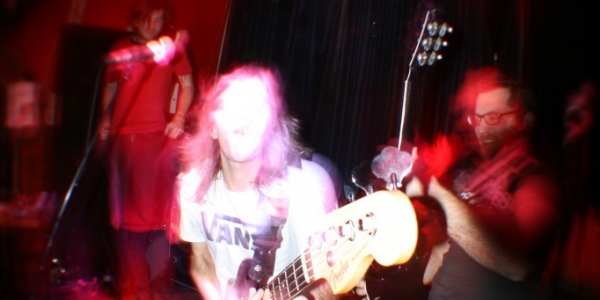“Despite all the talk and buildup at the start, we really assembled The Vaccines from the ground up,” Cowan recalls. “Granted, it happened quickly, but we did all the grafting – we played shows to ten people and since then we’ve been playing gigs, recording or doing something every single day. We didn’t just sit at home and let somebody else do the work – we put a lot of hard sweat into it.”
This is no more evident than with the group’s upcoming and second album, Come Of Age, which the band started recording on the day their debut What Did You Expect From The Vaccines? was released.
“We hadn’t stopped for 18 months straight so we were definitely tempted to take a break, but I just don’t think it was the right thing to do. We were on a roll, everything was going great, we had the songs, so we just thought we’d get on with it,” Cowan explains. Even in this short space of time, the band has matured considerably as musicians – something Cowan says was instigated by enlisting acclaimed producer Ethan Johns for the new release.
“When we set out to work with Ethan, we knew we were going to make a rawer rock record that diverted from the pop direction. Ethan records everything live without Auto-Tune, click track or anything – he just gets the vibe right, then he gets the sound he wants from the source. Then we just go for it.
“He also has an incredible understanding of the sonics of guitars – Kings Of Leon’s Because Of The Times is a great example of this. This was something we really wanted to bring out. We wanted to go from being an indie band to a rock band.
“Also, we are very tough on each other within the band. We often take each other to pieces for silly things such as little guitar parts or drum fills. That created a bit of pressure in the studio sometimes, but out of it all I think we emerged a much, much better band.”
When it came to pressure from outside the four walls, Freddie says the band has become immunised (or vaccinated, if you will) and has learned to ignore the weight of the media.
“I don’t really care anymore to be honest. The only pressure that matters has always been from ourselves – I feel pressure every day with everything we do and I kind of thrive on that. I feel like it’s what I was meant to do with my life and I’ve always wanted to do it. But in terms of the demands of making a record and stuff, I just don’t care anymore.
“We had pressure when we released our very first single, and now there’s always pressure. Where’s it even coming from? It’s like we were trying to live up to something before we’d even fucking started.
“It’s like now we’re seeing that our first album is suddenly this untouchable classic to everyone – we get a lot of people asking: ‘How are you going to follow up on that amazing first record?’ They didn’t say it was amazing when it first came out, but now all of a sudden it’s amazing and it’s attributing to further pressure,” says Cowan.
This demanding nature is something the band has cut its teeth on, however some bands aren’t as hardy, and Freddie believes it’s a negative trait that is concurrent across the whole landscape of the modern music industry.
“I think it’s born out of necessity because the music industry is dying and they’re not making enough money from record sales. The music industry has declined 15% since our first album came out – that’s only 18 months ago.The future of it is pretty fucked and it’s coming quick, so I guess everybody is trying to make the most of it while they can. I think the marketing departments and record labels are pushing bands to get a fast turnaround on things and that’s why pop music is now crafted in such an efficient way. You don’t need a big recording studio in London anymore; you just need one guy with a basement and ProTools.”
So are The Vaccines going to save the industry? Cowan doesn’t seem to think so.
“The only person that’s going to save the industry is somebody like Adele – anyone who is a phenomenon can keep the industry afloat. But I don’t think the industry necessarily needs saving; it just needs to find out what the next step is.”
BY CALLUM FITZPATRICK

